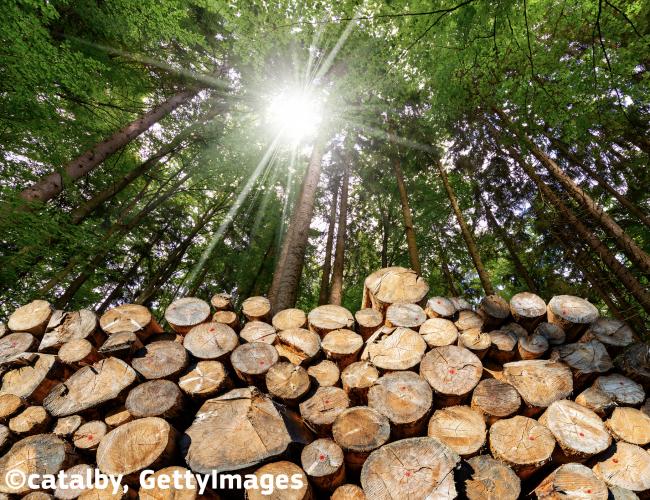The role of the forest-based bioeconomy in mitigating climate change through carbon storage and material substitution
Brief me
- The forest-based bioeconomy contributes to climate change mitigation in different ways: through the carbon stored in forests and the carbon stored in products made from wood, as well as by using wood to substitute fossil fuels and other, more carbon-intensive, materials.
- Forests and harvested wood products together, currently sequester the equivalent of circa 10% of EU’s greenhouse gas emissions. However, the carbon sink of forests is declining due to many factors.
- Reversing this trend requires sustainable forest management practices and afforestation. A shift towards greater use of wood products with longer service lives and substitution benefits can also increase the climate change mitigation benefit.
- A “system-perspective” analysis helps to understand the trade-offs and synergies amongst the different options and optimise the contribution of the forest-based bioeconomy to Europe’s climate goals.
Find out more in the brief and explore further other resources!
Explore further
The Greenhouse Gas inventories
Explore the greenhouse gas emissions and removals, sent by countries to UNFCCC and the EU Greenhouse Gas Monitoring Mechanism (EU Member States).
State of Europe's Forests
Learn more about the status and trends in forests and forestry in the pan-European region.
FAOStat – Forestry production and trade
Access data on production, imports and exports of wood products by country from 1961 to 2020.
Forest products in the global bioeconomy
Read about the latest FAO report on how forest products contribute in replacing fossil-based and GHG-intensive products, strengthening sustainable development.
Climate benefits of the use of harvested wood products in the construction sector
Learn about the climate benefits of using wood-based materials for construction and explore the role of policy in encouraging the use of these materials.
IPCC Climate Change and Land
Read the IPCC report on climate change, desertification, land degradation, sustainable land management, food security, and greenhouse gas fluxes in terrestrial ecosystems.


